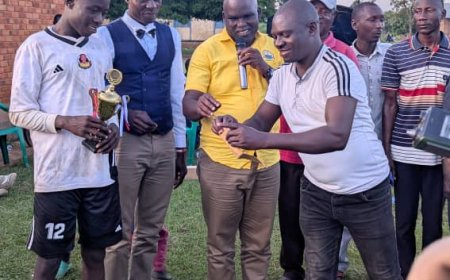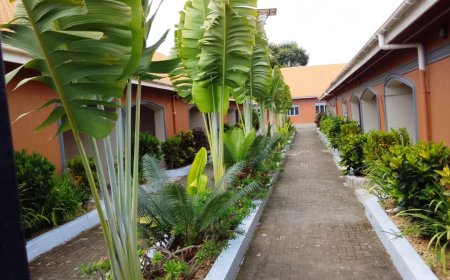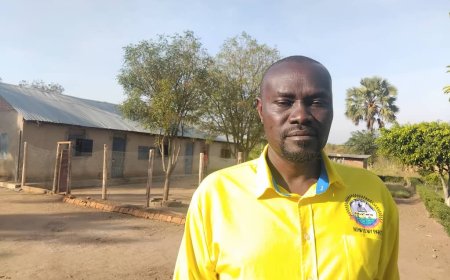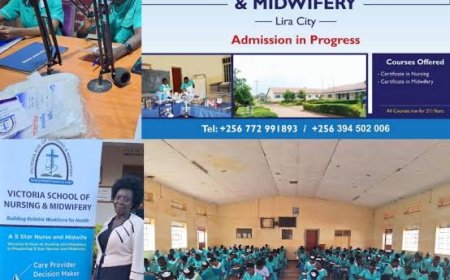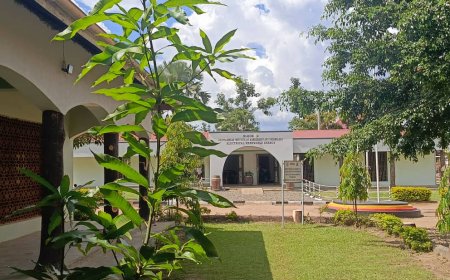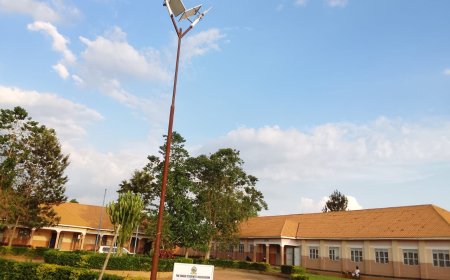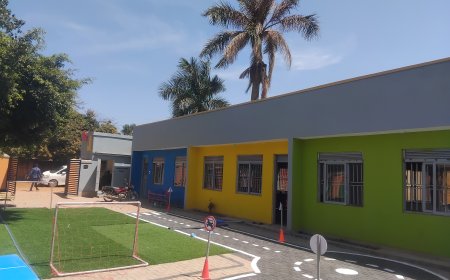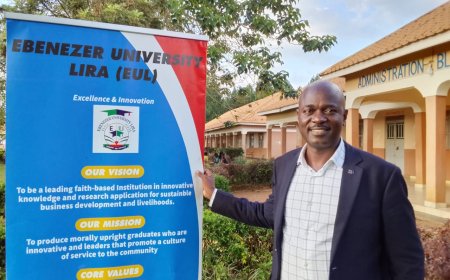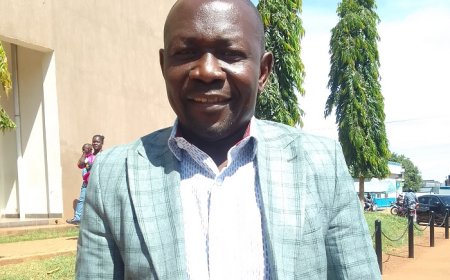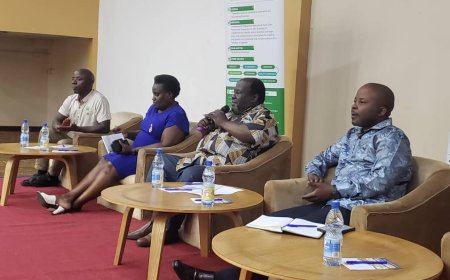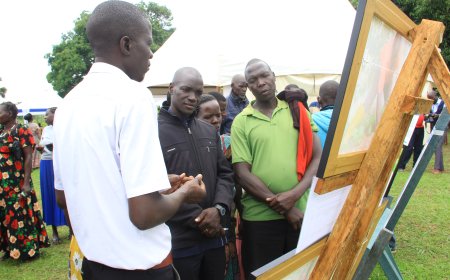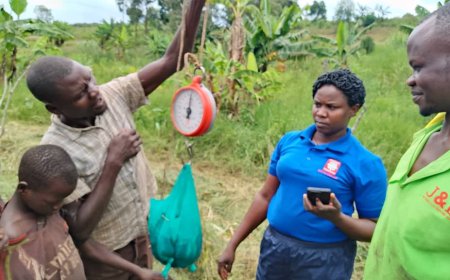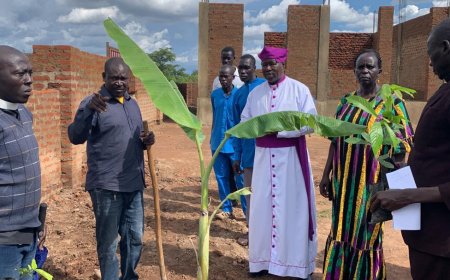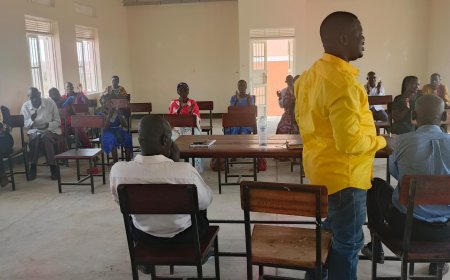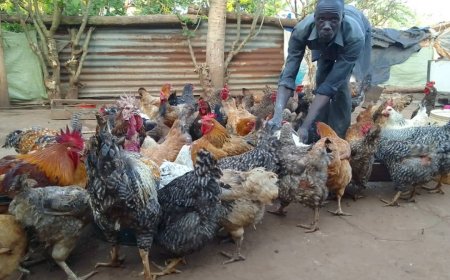Caritas Nebbi catholic diocese moots plan to address water crisis amongst farmers
Emmanuel Oyirwoth, an extension worker in the livelihood department at Caritas Nebbi Catholic diocese, cited water for production as a linchpin, in championing agricultural production.
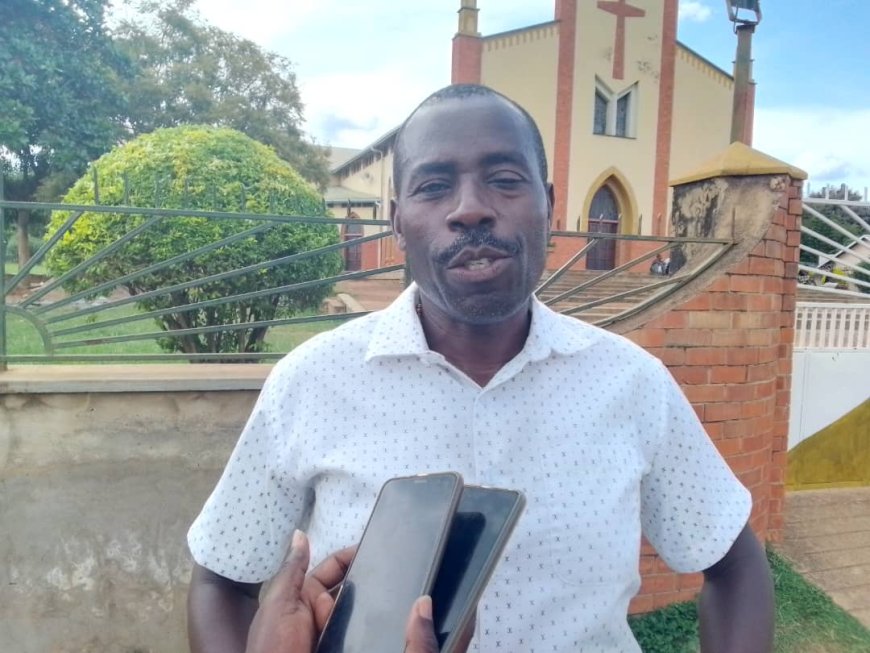
Caritas Nebbi catholic diocese moots plan to address water scarcity amongst farmers.
By Mike Rwothomio
WEST NILE, UGANDA: Caritas Nebbi catholic diocese under its core value of promoting the socio-economic well-being of the people, plans to lobby central government for preferential consideration for poor farmers in the Greater Nebbi area (Zombo, Nebbi and Pakwach Districts), and the rest of the country through provision of irrigation equipment.

During a one-day dialogue on water-for- production organized by Caritas Nebbi, together with Caritas Uganda sponsored by Caritas Norway held at Nebbi catholic Parish hall on October 31, the faith based organization engaged local government leaders, civil society organization and farmer groups drawn from the three greater Nebbi districts, on how farmers can acquire irrigation equipment, through loan payable at the end of agreed seasons or free of charge to model or active farmers or farmer groups.

Government of Uganda in the past years established community irrigations schemes in the greater Nebbi areas that amongst others include Ogudu in Atyak Sub-County, Wadelai in Ragem sub-county. However, many farmers can’t maximally utilize the available valuable infrastructure and resources due to string of factors.
The committee in that engagement, outlines 12 key resolutions and commitments in achieving their target of increased water for production for the farmers, considering that water scarcity is a real threat to food security. The resolution shall focus on promoting sustainable and integrated water resources management, sharing and disseminating knowledge and experience, consistent monitoring systems amongst others.
Ugandan climate change over the years has been manifested through unpredictable, intense and harsh weather events like drought, floods, and landslides amongst others. There is plan to also consider internal lobbying within organizations with the ideal purpose of “increased investment and allocation of funds towards provision of irrigation facilities for the farmers”
Onentho Godfrey Otwi, who works at Caritas secretariat in Kampala, said the meeting focused on how government and non-governmental organization can widen the options for available irrigation schemes for the farmers, that due to several factors can’t afford or access available irrigation schemes.
He also emphasized the need for maximized synergies between government, NGOs and farmer groups to find the collaborative solutions, further stressing the need for action-led approach not lamentation.
“We plan to lobby government to consider cost-effective procurement arrangements including tax exemption, considering that the current one is expensive and partly responsible for the exorbitant price of the micro-scale irrigation equipment” Onentho noted.
The organization recognized government effort in, providing micro-scale irrigation equipment; valley dams in areas such as Acwera in Padwot Sub-county, Ayombira in Atego Sub-county, Pabango in Akworo Sub-county and Nyakiro in Panyimur Sub-county; valley tanks; a surface irrigation scheme in Wadelai; and a small scale scheme in Atyak and Panyango sub-counties serving more farmers with gardens in the surrounding areas.
To supplement the government initiative on increased water for production, Joyce Piwa, a board member of Caritas Nebbi Catholic Diocese and also the head of finance, observed that the idea is one of the organization’s initiatives, focusing on boosting production and capacity of farmers, critically considering the widespread and adverse impact of climate change.
“These resolutions will help our farmers because we have seen a lot of changes in the weather pattern, yet our farmers don’t know when to plant and not to plant, we have seen government through their various initiatives coming in with various interventions to promote water for production. So as Caritas, that is one of our initiatives we are championing. Recently, Norway supported some groups in Jangokoro, and Panyimur and they were able to attest the benefits of water for irrigation “Said Piwa.
Emmanuel Oyirwoth, an extension worker in the livelihood department at Caritas Nebbi Catholic diocese, cited water for production as a linchpin, in championing agricultural production.
“One of the critical issues we all know is to enhance agricultural productivity, food security and economic growth, is water for production. This is because most of our farmers in the districts of Nebbi, Pakwach and Zombo, heavily depend on rain-fed agriculture” Oyirwoth noted
The organization amongst others seeks to raise awareness and sensitization of farmers on available irrigation opportunities, protect the catchment areas by planting trees and grass along the banks and their gardens, encourage financial institutions in the area to provide soft loans and support farmers through provision of social corporate responsibility funds, to enable farmers obtain government-subsidized or other irrigation equipment.
Meanwhile Consulate Angeyango, the Nebbi district Senior Agricultural Engineer, appreciated Caritas for the intervention and acknowledged the challenges faced by farmers in co-funding the available government established irrigation schemes, adding that of the 23 farmers in the entire Nebbi District that paid their commitment fee, only 15 paid fully.
Water is a key input for agriculture production and agriculture plays pivotal role in water equation since its responsible for around 70 percent of freshwater withdrawals.
Angeyango observed that there is potential for irrigation in the area, backed by favourable climate, available land, enough personnel supplemented by CSO’s intervention, available loans by financial institutions.
She stressed the need for mind-set change, advising farmers “we need to seek for guidance from extension workers on irrigation adaptability”
Kakura Emmy Kizio, the executive director of Life Concern, a non-governmental organization based in Zombo, commended Caritas’s strategy in boosting water for production in the community, stressing the need for prioritization of crops with ready market.
Paul Bwire Ogalo, the deputy resident district commissioner of Nebbi, called upon farmers to be organized, assuring that “when you’re very organized, government can co-fund you”
He also called for intensified sensitization of farmers, encouraging them to participate in this project.
Farmers react
Deogracious Munguryek, a farmer from Serr Parish, Abanga Sub county, Zombo district wrapped with joy welcomed the initiative , revealing that lack of funds for co-funding was a hurdle for them and called for extensive sensitization.
Alokcan Chris Okwir, a farmer from Boro Parish, Panyimur Sub county,Pakwach district, said “ there is need for us to be put in groups, such that we can benefit from the initiative”
Thiwe Anet, a farmer from Acana Sub-County, Nebbi District, said the biggest challenge for them has been co-funding the existing schemes, and expresses hope that the initiative will support their production.
According to the ministry of water and environment, Water for production promote development of cost-effective and sustainable water supply and management for increased production and contribution to the modernization of the agricultural sector in Uganda, focusing on poverty reduction and minimal environmental impacts though, bulk water transfer from areas of plenty to area of scarcity, appropriation of water harvesting technologies for irrigation and livestock development amongst others.
What's Your Reaction?







